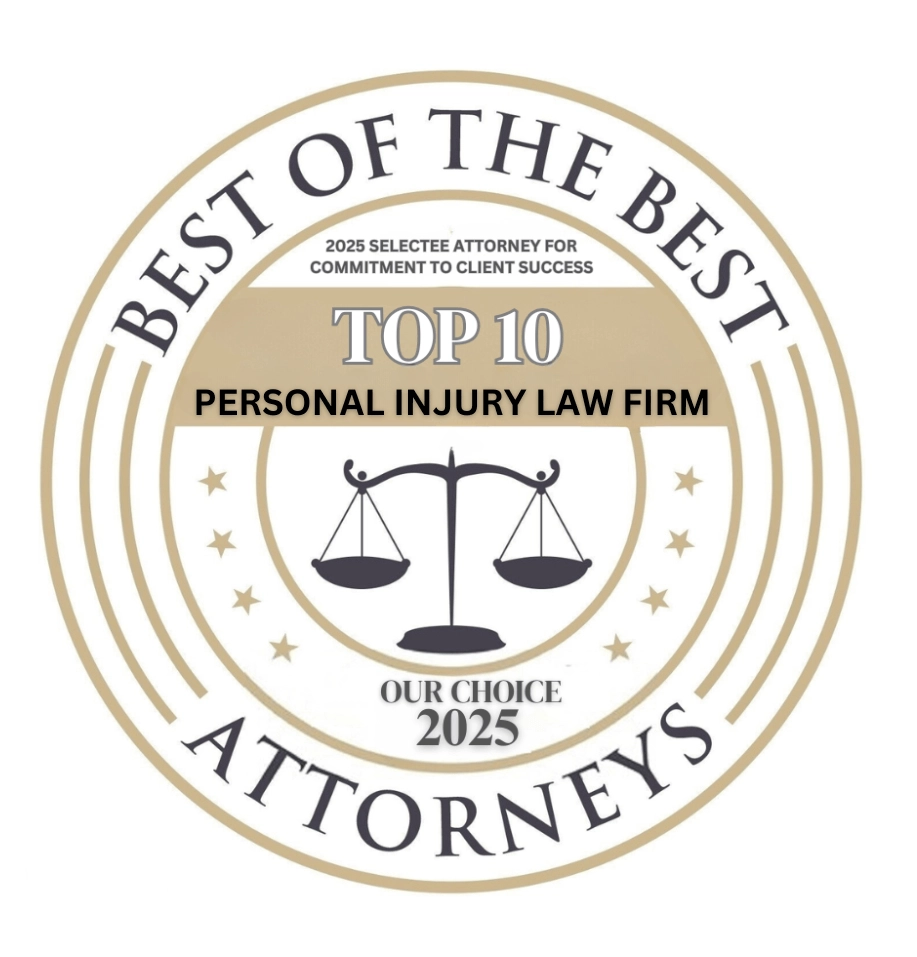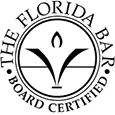What Happens in a Tire Blowout Accident?
Tire blowouts often happen in the blink of an eye. One moment, you are cruising calmly down the road, surrounded by other drivers equally committed to reaching their destinations. The next, a car spins out of control. With one tire missing, the vehicle might swing wildly through traffic and cause a car crash, which is difficult or even impossible to control, especially in the hands of an inexperienced driver.
Common Causes of Tire Blowout Accidents
Blowouts can happen to any tire. However, several common causes can add up to increased odds of a tire blowout, including:
- Impact damage. Running over something on the road, even if you do not notice it then, can cause a tire to blow out. Sometimes, the blowout occurs immediately, as your tire strikes debris in the road. Other times, you may bump over an item in the road and think the vehicle suffered no damage, only to discover a mile or two down the road that your vehicle suffered more serious damage than you initially thought.
- Old, worn-out tires. Tires, like every other part of your vehicle, wear down. Your tires take a lot of abuse from the road. Over time, the rubber wears down, which means it can no longer expand and contract appropriately when temperature and pressure change. Worn tires have a much higher risk of blowout than new, fresh tires with deep treads and no damage.
- Small punctures. Sometimes, small punctures, including those from nails or rocks, can create a serious risk of tire blowout. These small punctures can cause air to drain out of the tire, often so slowly that the driver fails to notice it. When the driver hits higher rates of speed on the road, this can lead to a buildup of pressure that, in turn, leads to a blowout.
- Overloaded vehicles. Vehicles carrying too much weight have an increased risk of a tire blowout. This includes vehicles carrying both too much passenger weight and too much cargo. For example, drivers of small pickup trucks may overload their vehicles to transport cargo in the truck bed, which can put too much pressure on the tires, especially if the driver has allowed the tires to wear down.
- Potholes. Like other hazards on the road, potholes can cause serious damage to a vehicle’s tires. Driving over a pothole can cause the tire to expand and contract rapidly, increasing the blowout risk.
What Happens During a Tire Blowout?
During a tire blowout, the vehicle may slow abruptly since the blown-out tire cannot continue rolling normally. Many drivers find the vehicle pulls strongly to one side, depending on which tire bursts. In larger vehicles or vehicles carrying substantial weight, drivers may have difficulty moving the vehicle safely off the road. The driver may also struggle to control the vehicle since steering will change due to the accident.
Tire blowouts may cause single-car accidents as the driver struggles to move the vehicle safely off the road, or they may cause multi-car accidents, especially on busy roads or at high speeds. Often, the driver with the blowout will struggle to maneuver the car safely.
A driver following too closely behind that vehicle may be unable to stop fast enough to avoid a collision. In other cases, the driver with the blown-out tire may strike another vehicle while struggling to control the car.
What Does an Insurance Company Cover in a Tire Blowout Accident?
- Towing services. Many insurance companies offer payment for towing services, which allows you to take your car somewhere to repair the tire. Towing your car can prevent you from having to replace the tire on the side of the road. In some cases, the car has also suffered additional damage that needs repairing.
- Damage to other parties’ vehicles. If your tire blowout causes an accident with another vehicle, your liability coverage will cover any damage to the other party’s vehicle. This coverage will fall within the normal limits of your policy. In Washington, this means a minimum of $10,000 of coverage for property damage in a single accident.
- Injuries to other parties. Tire blowout accidents can cause serious injuries to other parties who share the road with you. As your vehicle spins out of control, you may accidentally strike pedestrians, cyclists, bikers, or other vehicles. When you cause serious injury, your car insurance company usually covers those injuries to another party. This includes a minimum of $25,000 of coverage for a single individual injured in an accident or, according to Washington law, a minimum of $50,000 for all parties injured in an accident.
- Damage to your vehicle. Do you carry comprehensive insurance coverage on your vehicle? If so, your insurance company may cover any damage to your vehicle in the accident. While your insurance company will not pay to replace the tire itself, it may offer coverage that will help take care of, for example, damage from your vehicle striking a telephone pole or guard rail that you collided with after your tire blew out. Comprehensive coverage can help you repair any damage your vehicle suffers outside the damage to the tire itself.
If you suffered injuries in an accident due to someone else’s tire blowout, you may have the right to seek compensation. The other person’s insurance company will likely cover damages to your vehicle and offer compensation for medical bills, pain and suffering, and lost wages at work.
You may, however, need to file a claim with the insurance company, and if that fails to work, you may file a lawsuit. A motor vehicle accident lawyer can help you do both of those things. By hiring a lawyer to file the claim, you’ll ensure everything is correctly done, while the insurance company will know it can’t push you around and has to take your claim more seriously.
Decreasing Your Risk of a Tire Blowout
To keep yourself, your passengers, and others on the road with you safe, follow these steps to decrease your risk of a tire blowout accident:
- Replace your tires when needed. Check your tires regularly—every time you put gas in your vehicle, for example. Walk around your vehicle and check all four tires. A problem with your suspension or your car’s alignment can cause tires to wear unevenly, so knowing that one tire looks fine does not necessarily tell you that they have all worn out at the same rate. Try the penny trick: if you put a penny in the tire’s tread with Lincoln’s head pointing down, you should not see the top of Lincoln’s head. If the tread wears down further than that point, it is time to replace your tires.
- Follow the rules of the road. Pay particular attention to speed limits, especially when driving through unfamiliar areas. Drop your speed in residential areas and around construction, where increased hazards can damage your vehicle’s tires. Slower rates of speed can help protect your tires, especially if you need to drive over potholes or around construction hazards.
- Get a good idea of what weight your vehicle can handle. Check your owner’s manual or contact your vehicle manufacturer, especially if you regularly use your vehicle to haul heavy loads. You want to have a good idea of exactly how much pressure your tires can handle before increasing the risk of blowouts.
- Keep your tires properly inflated. Get in the habit of checking your tire pressure regularly, especially during changes in the weather, which can lead to underinflated or overinflated tires. Both under- and overinflation can increase the risk of a blowout. Check your owner’s manual to understand exactly what your tire pressure should be. Many facilities that offer oil changes will also check your tire pressure and air them up for free if needed. If you notice that you regularly need to reinflate your tires or that your tire pressure drops rapidly for no reason, you may want to check your tire for nails, small punctures, or leaks. Patch and repair your tire or, if needed, replace it as soon as possible. Slow-pressure leaks can cause just as much danger as a quick puncture.
- Pay attention to the road around you. If you travel at a safe rate of speed and maintain an appropriate following distance from vehicles in front of you, even if you do suffer a tire blowout, you should have plenty of time to slow down and get your vehicle off the road safely. If you choose to travel at unsafe rates of speed or to weave in and out of traffic, on the other hand, a tire blowout can cause a catastrophic accident. Paying attention to the road can also help you avoid potholes and give you a good idea of where to stop your car in an accident. Keeping your eyes on the road can help keep you safe even if you suffer a tire blowout.
If you suffered injuries in a tire blowout accident, you may need an attorney to help negotiate with the other party’s insurance company on your behalf. Contact an attorney as soon after the accident as possible so that you can start seeking the help you need and the compensation you deserve for your injuries.
Free Consultation
We Are Here For You 24/7
Reviews
– Elissa M.
“Really pleased with Boohoff Law! Received immediate responses when I had any questions. Treated amazingly by all staff … made this process a true breeze!”
– Caitlyn M.
– Brandy K.
Related Posts
Sidelined by a Sudden Door? Figuring Out Who Is Liable in a Dooring Bicycle Accident
After the Impact: Who Can Be Sued in a Commercial Truck Accident Case?
What if My Child Was Injured on a School Bus? How To Protect Their Rights and Future
Recovery is personal.
We’re here for you.
We’re close by. And if you can’t make it to us, we’ll meet you where you need us, at home or in the hospital.
You're better off with Boohoff.











The information on this website is for general information purposes only. Nothing on this site should be taken as legal advice for any individual case or situation. This information is not intended to create, and receipt or viewing does not constitute, an attorney-client relationship.
available 24/7
(877) 999-9999
